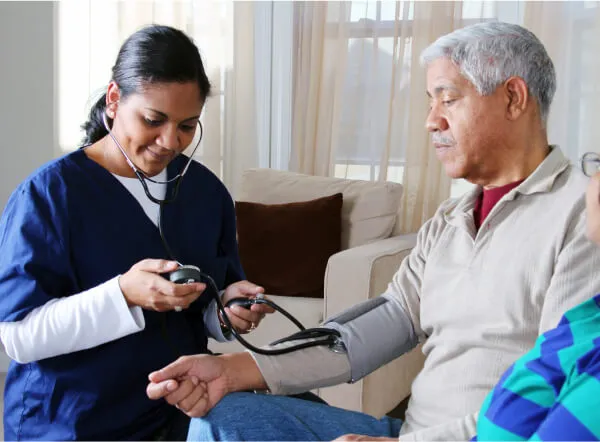Public and Community Health Nursing

Learn how you can qualify for a position in public and community health nursing. Find information about undergraduate prerequisites and graduate programs here, as well as what types of courses you'll take and what kind of preparation you'll receive for working in this specialized field of nursing.
<h2 id="section---IsPublicAndCommunityHealthNursingForMe">Is Public and Community Health Nursing for Me?</h2>
<p><a href="https://learn.org/articles/What_Does_a_Public_Health_Nurse_Do.html">Public health nurses</a> are <a href="https://learn.org/articles/Registered_Nurse_RN_Career_Definition_Employment_Outlook_and_Educational_Requirements.html">registered nurses (RNs)</a> who have advanced training in public or community health. According to the American Public Health Association, they are primarily concerned with educating the public about health issues, illnesses and preventative measures that affect their immediate location. (<i>www.apha.org</i>). As a public and community health nurse, part of your job may entail working with specific populations or homebound seniors. You may also implement programs in child health and tuberculosis control, raise awareness of communicable diseases or conduct health screenings for men, women and children.
</p>
<h3 id="section---CareerOptionsAndSkills">Career Options and Skills</h3>
<p>According to the U.S. Bureau of Labor Statistics (BLS), as a public and community health nurse, you may work in hospitals, private clinics, non-profit organizations and schools. Based upon information provided by the BLS, the best RNs are caring, compassionate, detail-oriented and able to cope with emergencies (<i>www.bls.gov</i>).
</p>
<h3 id="section---EmploymentAndSalaryInformation">Employment and Salary Information</h3>
<p>As reported by the BLS in May 2013, more than 2.6 million people were employed as RNs in the United States, including public health and community nurses. Nationwide, <a href="https://learn.org/articles/What_is_the_Employment_Outlook_for_Registered_Nurses.html">employment of nurses</a> is expected to increase by 19% between 2012 and 2012, which is much faster than the average rate of growth for all occupations. As of May 2013, the mean annual <a href="https://learn.org/articles/What_is_the_Average_Salary_for_a_Registered_Nurse.html">salary for RNs</a> was $68,910 (<i>www.bls.gov</i>). According to <i>Payscale.com</i>, most public health nurses earned between $39,292 and $71,857 as of July 2014.
</p>
<h2 id="section---HowCanIWorkInPublicAndCommunityHealthNursing">How Can I Work in Public and Community Health Nursing?</h2>
<h3 id="section---EducationalOptionsAndPrerequisites">Educational Options and Prerequisites</h3>
<p>To pursue a <a href="https://learn.org/articles/What_are_Popular_Career_Options_in_Public_Health.html">career in public health</a>, you'll first have to complete an undergraduate degree in nursing. Programs specific to community health are available at the master's and doctoral degree levels and may be found on campus or <a href="https://learn.org/articles/What_are_the_Core_Courses_of_an_Online_Community_Health_Degree.html">online</a>.
</p>
<h3 id="section---MasterSDegreePrograms">Master's Degree Programs</h3>
<p>Through a <a href="https://learn.org/articles/Community_Health_Masters_Degrees_Answers_to_Your_Questions.html">master's degree program in public and community health</a>, you'll pursue <a href="https://learn.org/articles/Which_Public_Health_Courses_are_Usually_Required_for_Nurses.html">courses</a> in health assessments and promotions, pharmacology, environmental health and program planning. The study of complementary therapies may also be covered. Areas of potential research might include nursing practices, disease prevention and health care theories. You'll also have to complete clinical practicums in nursing and public health.
</p>
<h3 id="section---DoctoralDegreePrograms">Doctoral Degree Programs</h3>
<p>A <a href="https://learn.org/articles/Public_Health_Doctoral_Degree.html">doctoral degree program in public health</a> may include the study of health systems and policy development. In addition to lectures, you'll write and defend a dissertation and engage in clinical practicums. As a qualified graduate, you may direct community or public health programs or teach nursing or public health at a college or university. Alternative degree options include a doctorate in nursing with a specialization in public or community health.</p>


.svg)